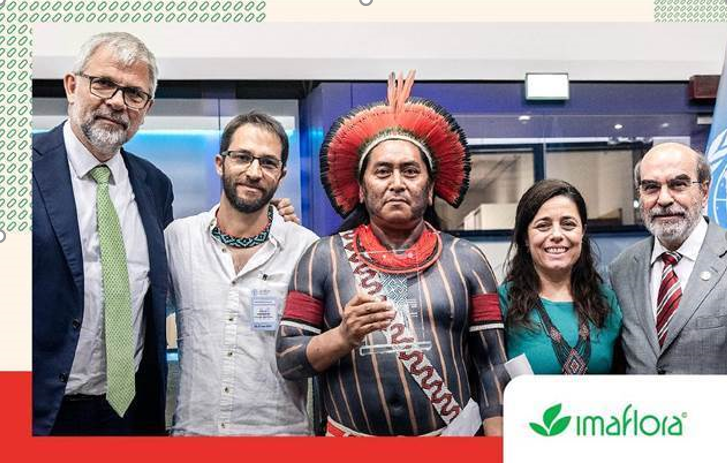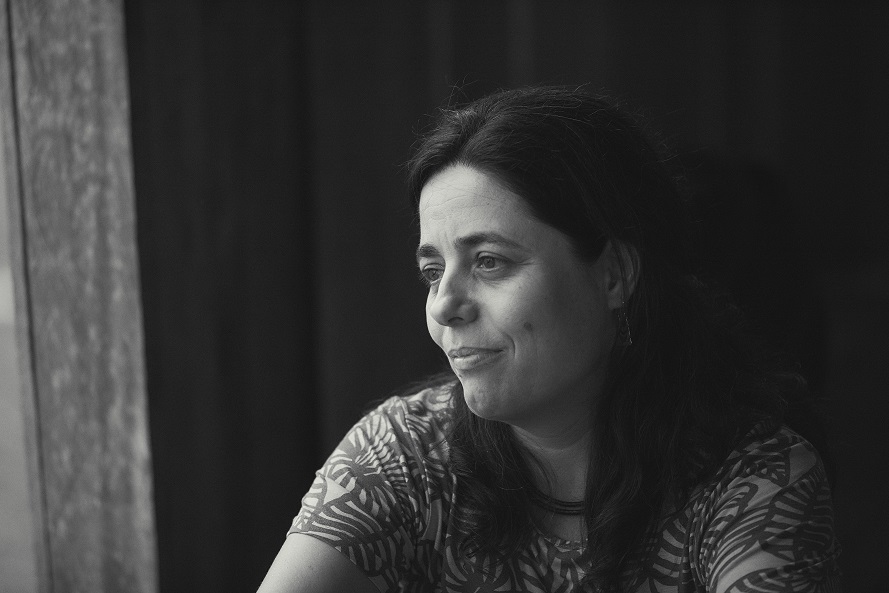When she joined the Instituto de Manejo Florestal e Agrícola (IMAFLORA) almost 20 years ago, the young engineer and master in tropical forest management could not imagine that she would be in charge of one of the most important projects for the valorization of traditional and indigenous communities in Brazil, the Origens Brasil Network.
However, the beginning of the trajectory was as an auditor, verifying the fulfillment of socio-environmental standards by riverside communities in the Brazilian Amazon. Field auditing in the Amazon is not an easy task for women. Hours are spent in simple boats, crossing rivers and streams to reach Brazilian nuts production areas, for example. In general, there are no bathrooms and the accommodations in the forest are improvised. For any woman in fieldwork, bathing fully dressed is recommended practice due to the ingrained bad behavior of some men that can degenerate in situations of harassment. However, the solidarity of other women, both indigenous and riverside, has always existed.

Patricia receiving the first International Innovation Award for Sustainable Food and Agriculture awarded by FAO and the Federal Government of Switzerland in 2019
In addition to the solidarity and welcome to the white engineer from the Southeast, real moments of sharing occurred. Patricia remembers the time when she was auditing a community in the extreme north of the state of Amapá, very far from any city. Patricia had given birth not long ago and was still nursing. It then happened that a lady from the community who had adopted a baby boy whose mother was unable to raise, introduced the child who kept crying and Patricia ended up breastfeeding the baby. Years later, in another audit, she met again the already strong child. This small gesture of two women from different cultures and generations is just a sample of how solidarity humanity can be, after all.
Many other stories are part of these nearly 20 years of experience of engineer Patricia in the Amazon. The front of the Origens Brasil Network has many challenges ahead. With a lean team of two women and one man, Patricia coordinates the actions of Origens Brasil in four territories that house 35 Protected Areas and a network of 1760 producers. The female producers of this network account for 45% of this total, the majority being indigenous women.
Watch the video where Patricia talks about ORIGENS
Patricia and her team are finalizing a Digital Platform that will showcase this productive and gender diversity. In addition, the monitoring of the integrity of the territories where the Origens Brasil Network operates should involve women in a more affirmative manner through the provision of training and capacity building targeted at them. Other gender perspectives are being sought at Origens Brasil. Patricia explains, for example, that the impact measurement includes an indicator that should be answered only by women and that measures how much they are involved in decisions to market products in the community. These data are being compiled and will soon enable a vision of the economic role of indigenous and riverside women in their communities. There is a long way to go in recognizing and leading women who live in the forest and the forest. Engineers like Patricia, women on his team and indigenous and riverside women are a source of accumulated knowledge and practice that need to be known by more women in the forest environment.



